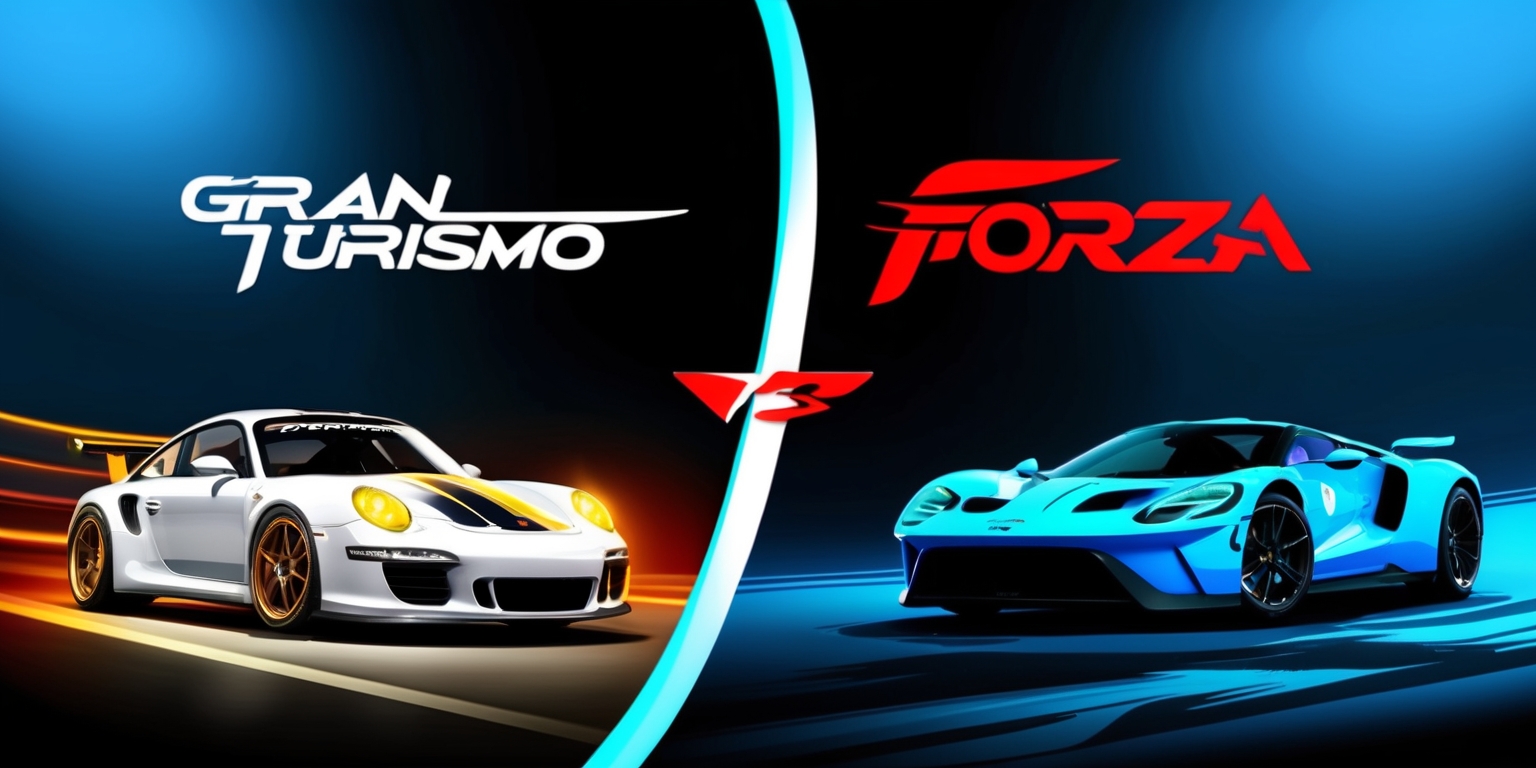The Thrill of the Race: Gran Turismo vs. Forza in the Battle for Racing Supremacy
- 2025-01-10
- 0
In the realm of console gaming, competition breeds quality, and this is particularly clear in the racing genre, where titans PlayStation's Gran Turismo and Xbox's Forza stand at the forefront. These racing franchises have fueled the passion of gamers for years, each carving a unique niche that resonates with their respective audiences. The journey through the asphalt-laden tracks of these games evokes excitement and a hint of rivalry, as both franchises vie for dominance in this highly contested arena. Will Gran Turismo ultimately find a way to match or unseat the established reign of Forza? Let’s delve deeper into the characteristics, successes, and challenges of both franchises to gain a clearer perspective.
Exploring the Racing Landscape
The competition between PlayStation and Xbox has defined the terrain of contemporary gaming, especially within the racing genre. While both franchises might cater to different styles and preferences, they share a common target: the hearts of racing enthusiasts. Over the decades, racing titles have proliferated in various forms, but Gran Turismo and Forza stand as monumental examples in the pursuit of the ultimate racing experience.
The Realism of Gran Turismo
Gran Turismo, developed by Polyphony Digital, has built its reputation on delivering a realistic driving simulation. Gamers flock to this title because it captures the essence of professional motorsports, emphasizing technical precision and an authentic driving experience. Players navigate meticulously designed tracks with a comprehensive roster of vehicles, each demanding a unique approach to support various driving styles.
Immersive Detail in Gameplay
One of Gran Turismo’s standout features is its visual quality. The game boasts stunning graphics that provide players with an immersive environment that closely mirrors real-world racing. From the finish line to the pit stop, every detail is crafted with care, ensuring players feel as though they are genuinely in control of a high-performance vehicle.
Customization: A Key Component

The customization options available in Gran Turismo allow players to tailor their racing experience, with vehicle tuning and modifications that enhance both performance and aesthetics. Serious racing fans often invest in specialized equipment, such as steering wheels, to further elevate their experience. This commitment to realism has certainly amplified Gran Turismo’s appeal among die-hard racing enthusiasts.
Forza: A Tale of Versatility
Bursting onto the scene in 2005, Forza has made waves with its innovative blend of fun and realism. This franchise has managed to capture the hearts of players through its stunning visuals, immersive environments, and an extensive selection of cars. The spirit of freedom in Forza resonates deeply with gamers who enjoy exploring vast, open-world settings.
Weather Dynamics and Engaging Environments
One of the defining characteristics of Forza is its dynamic weather and lighting systems. Both Forza Motorsport and Forza Horizon excel in creating environments that feel alive. Sudden changes in weather, coupled with the natural evolution of time during races, enhance the immersive journey that entices players to return repeatedly.
Seamless Gameplay Makes All the Difference
The allure of Forza extends beyond the races themselves; the streamlined gameplay experience allows players to effortlessly switch between vehicles, minimizing distractions and maximizing enjoyment. This seamless transition between cars fosters an immersive gaming experience that encourages exploration and enhances the overall racing feel.
Comparative Strengths: A Closer Look
When weighing Gran Turismo and Forza, it’s crucial to recognize their respective strengths. Gran Turismo appeals to players seeking technical racing and realism, while Forza's charm lies in its accessibility and fun-factor. This duality not only enriches the gaming landscape but highlights the unique offerings of both franchises.
Sales Performance and Player Preferences
Despite Gran Turismo’s formidable presence, Forza has consistently outperformed it in sales and popularity. Both games have maintained a steady fanbase, but the appeal of Forza's richer variety, immersive gameplay, and engaging multiplayer components have driven it forward. Players are often drawn to its more casual approach, which allows for a less rigid racing experience.
The Motion Picture Factor
In an attempt to bolster its market visibility, Sony ventured into film territory with a Gran Turismo movie. However, the commercial impact was underwhelming, lacking a significant boost for the game’s sales. Meanwhile, Forza continues to drive player interest with compelling updates and expansions that keep the community engaged.
A Broader Car Selection
Forza’s extensive car roster plays a crucial role in its overall appeal. Unlike Gran Turismo, which offers a narrower selection that may appeal specifically to racing purists, Forza features an expansive selection designed to accommodate a wide range of tastes. This variety ensures that players remain invested, as they have countless options to explore.
Open-world Freedom in Forza
Freedom is a fundamental aspect that sets Forza apart from Gran Turismo. Although both games are racing simulations, Forza emphasizes enjoyment over strict realism. This open-world formula allows players to traverse diverse landscapes, delighting in the thrill of the race, regardless of the setting.
Comparative Age of the Franchises
As both franchises reach a significant age—over two years without major new titles—players speculate regarding what each has prepared for the future. While Forza seems to continually innovate, Sony's strategy for Gran Turismo remains closely watched, while the community is excitedly anticipating the upcoming chapter in this storied rivalry.
Hardware Sales as a Factor
Despite Sony's hardware sales leading the charge in the console wars, the effects of this dominance on the sales of Gran Turismo are still uncertain. With plenty of platform loyalty, players may gravitate towards games that resonate with their experiences, irrespective of the devices they possess.
Final Thoughts: The Future of Racing Sims
As we examine these two dominant forces in the racing game genre, it becomes increasingly clear that Gran Turismo has its work cut out to overtake the well-established Forza franchise. While both games offer thrilling experiences for their respective audiences, Forza continues to hold a notable edge in player engagement and commercial success. The question remains: can Gran Turismo innovate enough to reclaim its status as the ultimate racing game? The racing community remains divided, passionate, and ready to share their thoughts on this ongoing rivalry, eagerly awaiting the next race in gaming history.






Leave a comment
Your comment is awaiting moderation. We save your draft here
0 Comments